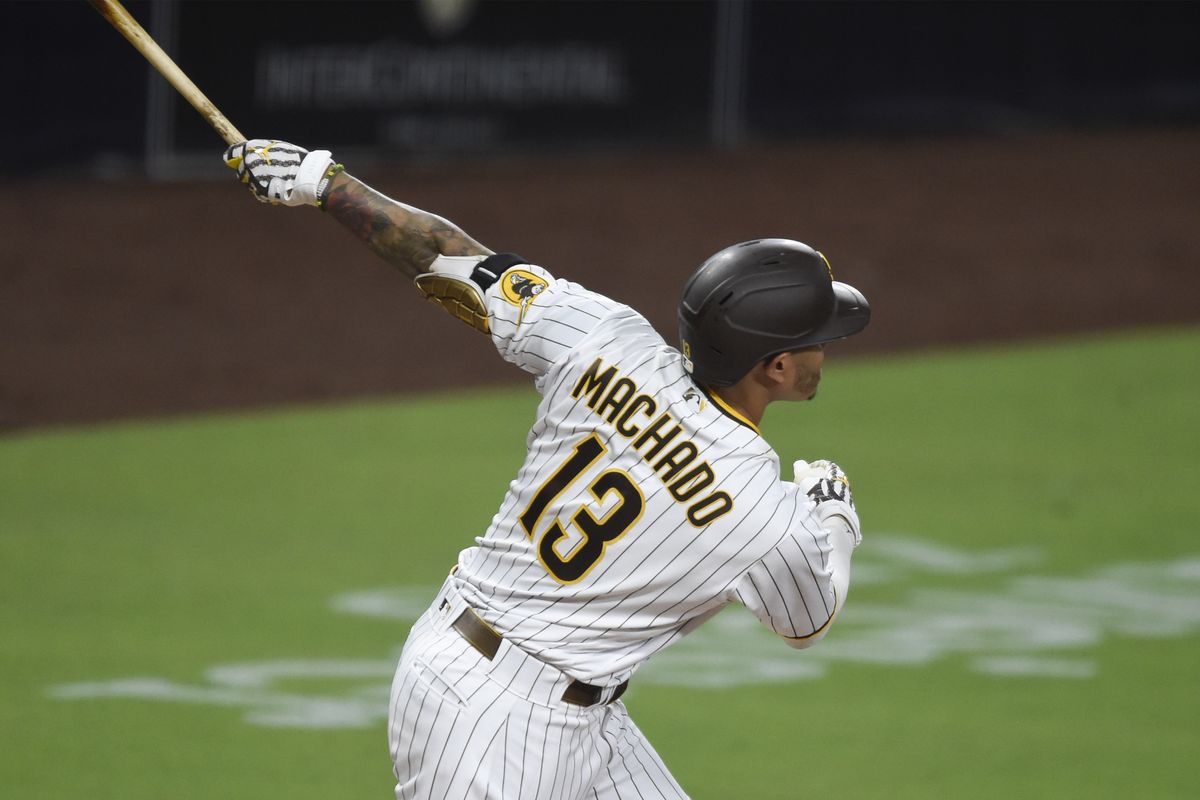Yusei Kikuchi struggles through another start as Mariners fall to Padres

As Yusei Kikuchi tried to navigate his way through the San Diego Padres’ lineup, lacking command (making a pitch go where it’s supposed to go) or control (throwing strikes), both of which apparently opted for a Friday night in the Gas Lamp district, it became clear in the first few innings that this would be another forgettable, pitch-filled start for the left-hander.
It’s fair to wonder if the Seattle Mariners really know anything more about Kikuchi being a productive member of their rotation than they did a year ago as he was winding up a maddeningly inconsistent rookie season.
In his eighth start of the season, Kikuchi gave the Mariners an outing that offered little chance at victory and ultimately ended up being a 6-1 loss to the host Padres.
That the defeat didn’t seem like a possible win for the Mariners from the game’s first inning meant they remained three games behind the second-place Astros in the American League West standings. Houston lost 6-3 to the Arizona Diamondbacks. Both teams have nine games remaining. And the Mariners are really an added game behind in the standings since Houston owns the tiebreaker, having won the season series.
Kikuchi made it through just four innings, giving up five runs on four hits while issuing a season-high six walks with three strikeouts. He threw 89 pitches with just 46 strikes. And while a strike percentage hovering around 50% is bad, it’s the nature of the nonstrikes that were the bigger problem. So many of his nonstrike misses were noncompetitive, meaning they weren’t anywhere near the strike zone. They weren’t borderline pitches. They were wayward to the point that not even the freest of swingers, think Yuniesky Betancourt, would even consider taking a hack at them.
That Kikuchi only gave up five runs considering the 10 base runners was also a minor miracle.
And really, it was all because of Manny Machado’s three-run homer in the four-run fourth inning that did the bulk of the damage. Despite the traffic and the strike-throwing issues, Kikuchi pieced together just enough decent pitches to only allow one run through three innings.
Perhaps it’s fitting that the pitch that Machado hit out – a 2-2 slider – wasn’t even a strike and was about 4-6 inches below his knees.
Meanwhile, the Mariners’ offense was rendered pretty much nonexistent by Padres’ starter Chris Paddack. The big right-hander pitched six shutout innings, allowing just a single to Evan White with two walks and three strikeouts. Paddack registered 11 ground ball outs.
But let’s get back to Kikuchi and the understanding of who he is and what he might mean to the Mariners moving forward.
A year ago, Kikuchi was 6-11 with a 5.46 ERA in 32 starts. In 161 2/3 innings, he struck out 116 batters and walked 50. His velocity on his fastball would vary from start to start. If he had a game with 94-95 mph fastballs, the next two would be 90-92 mph. His approach to his mechanics seemed to change from game to game and at times inning to inning. The Mariners chalked much of it up to transition to the increased difficulty of Major League Baseball from the Nippon Professional Baseball in his native Japan. Throw in the death of his father and the birth of his first child, and, well, he had a full season on and off the field.
And this year? Well, he throws consistently harder with his fastball and slider after shortening his arm path and cleaning up his mechanics during the offseason with the help of the Mariners coaches and Driveline Baseball in Kent. And he hasn’t strayed from those mechanics all season.
But that’s about it.
There’s still been minimal consistency in performance or execution. At age 29 and with 40 MLB starts made, the variance of expected performance is too extreme.
So much of 2020 is a throwaway season for players in terms of true evaluations. But the added velocity and the Mariners use of a six-man rotation should’ve provided significant benefits for Kikuchi to pitch well.
Could a return to some level of normalcy in the 2021 season with the increased velocity and normalized mechanics bring consistent success? It will be seminal for Kikuchi and the Mariners for a variety of reasons – mostly financial.
As part of his unique four-year, $56 million contract, the Mariners have to make a decision about his future when the World Series ends after the 2021 season.
The Mariners will have three days to decide if it wants to exercise its club option on Kikuchi. The club option isn’t for one year but four, yes, four. The option encompasses the 2022 through 2025 seasons for a total of $66 million at an annual average salary of $16.5 million, which would then put the contract at $109 million dollars.
If the Mariners choose not to exercise the club option, Kikuchi would be given a player option year of $13 million for 2022. He could either exercise that option, spending 2022 with the Mariners or opt out of that final year and head to free agency.
“It is a contract structure that is beneficial to the club and the player,” general manager Jerry Dipoto said at the time. “It gives us the opportunity to keep him here for seven years at 100-plus million or gives him the flexibility to seek something else if it’s not as easy of a transition for him.”
Well, it would be unfathomable for the Mariners to exercise that club option and keep Kikuchi based on what they’ve seen thus far and even what they might see next season.